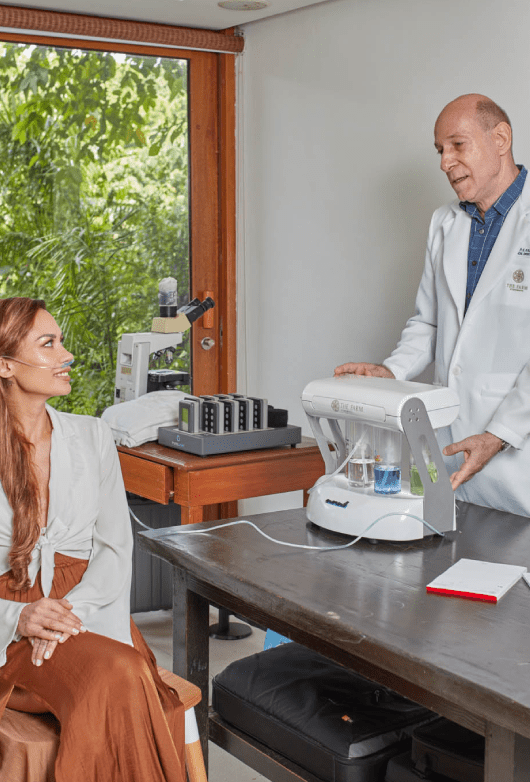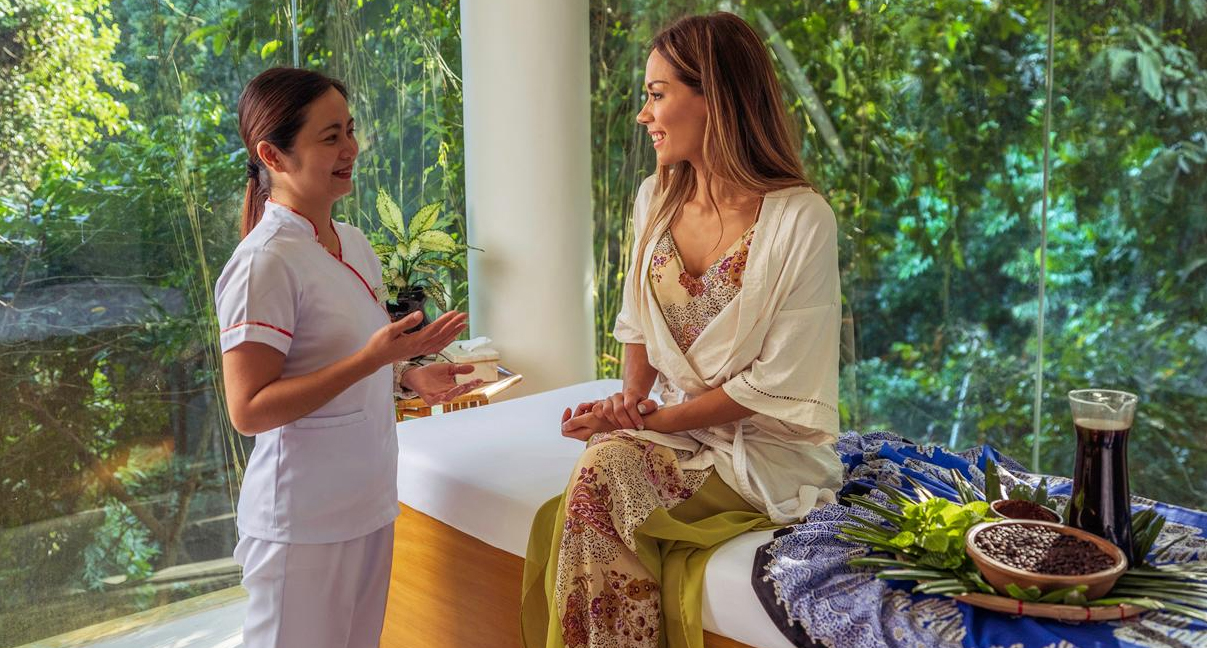Today, more and more individuals seek medical treatments that are not only effective but also align with their personal values and wellness goals. This supports the increasing crossover between medical wellness tourism and holistic/integrative wellness approaches. And, this dynamic is particularly prevalent in regions known for natural and holistic health services, such as Southeast Asia.
In Thailand, for example, dental work is not only about addressing dental issues but also about providing a well-rounded experience that ensures the patient’s comfort and well-being throughout their treatment.
Similarly, the Philippines is renowned for luxury resorts with programs from holistic cancer care to detox for diabetes patients to natural “inside-out” beauty treatments.
These examples underscore a significant trend towards integrating medical treatments with wellness practices that promote healing, recovery, and overall well-being. The good news is that these more holistic and integrative methods are increasingly covered by insurance policies, marking a major shift in how we approach medicine today.
The fusion of integrative/holistic wellness and wellness tourism not only highlights a comprehensive approach to healthcare but also underscores the growing trend of individuals seeking more personalized, whole-person care that transcends Western medicine.
In this article, we’ll delve into a few key definitions, the target audience for holistic/integrative-informed medical tourism, and some reasons for considering this approach.

Defining Holistic Wellness, Integrative Wellness, and Medical Wellness Tourism
Holistic Wellness emphasizes the connection between mind, body, and spirit, focusing on treating the individual as a whole rather than just addressing specific symptoms or ailments. It encompasses a variety of non-medical practices to improve overall well-being, including nutrition, exercise, stress management, and natural therapies.
Integrative Wellness merges traditional Western medical practices with alternative or complementary treatments such as acupuncture, yoga, and herbal remedies. It’s based on the philosophy that patient care should address the full range of physical, emotional, mental, social, spiritual, and environmental influences that affect health.
Medical Wellness Tourism refers to traveling domestically or internationally to seek medical or health services. This could range from preventive services, medical treatments, to recovery within a setting that also offers a wellness experience. It’s about combining healthcare with the experience of exploring new cultures and environments, aimed at enhancing one’s overall well-being.
Who Is It For?
This approach to wellness is for anyone seeking a more comprehensive and personalized path to health and well-being. It’s particularly appealing to individuals who:
- ● Prefer a more natural and less invasive approach to health care
- ● Are dealing with chronic conditions that haven’t been fully managed by conventional medicine
- ● Seek to improve their overall quality of life through preventive care and lifestyle changes
- ● Are interested in exploring global cultures through the lens of health and wellness
Why Consider Medical Wellness Tourism Incorporating Holistic/Integrative Practices?
There are several general reasons to consider this approach – factors that make a big difference in how you experience treatment:
- Personalized Care: Care involves a more tailored healthcare experience that considers your unique circumstances, preferences, and needs
- Whole-Person Focus: By addressing all aspects of your life, these practices aim to not only treat or prevent illness but also to enhance your sense of well-being and quality of life.
- Preventive Approach: There’s a strong emphasis on preventing health issues before they start, which is often more effective and less costly than treating diseases after they develop.
- Cultural Experience: Traveling for health services allows you to immerse yourself in new cultures, which can be a profoundly healing experience in itself.
- Kindness As A Standard: Treating patients with kindness is not just a courtesy; it’s a core principle of the care model in these wellness tourism destinations and is reflected in every aspect of the patient experience, from initial consultations to treatment and recovery.
In addition, there are some practical reasons that make this type of medical wellness tourism particularly compelling – we’ll go into these in a bit more detail:
Shorter Waiting Times
One of the critical advantages of seeking medical wellness services abroad is the dramatic reduction in waiting times. In contrast to the lengthy waits that are often characteristic of healthcare systems in many Western countries sometimes extending to several months or more for elective procedures destinations known for medical tourism frequently offer much shorter waiting periods.


This efficiency does not come at the expense of quality; rather, it is a hallmark of well-organized healthcare systems geared towards accommodating both local and international patients efficiently. For individuals seeking timely medical attention, this can be a decisive factor in opting for wellness tourism.
Uniquely Trained, Highly Qualified Doctors
Another differentiating aspect of medical wellness tourism is the unique opportunity to receive care from a diverse array of medical professionals. Many healthcare providers in popular wellness tourism destinations are not only Western-trained, offering a level of familiarity and confidence for international patients, but also have credentials in integrative medicine.
This dual expertise allows them to bridge the gap between long-standing traditions and modern science, offering treatments that are both innovative and deeply rooted in cultural practices. Patients benefit from a holistic approach that respects traditional healing wisdom while also employing the latest in medical science.
This blend is especially valuable for those seeking treatments that conventional medicine alone does not fully address, offering new pathways to health that are informed by a deep understanding of both the body and the mind.
A Fusion of Luxury & Technology
The concept of luxury resort-style hospitals and wellness resorts represents a paradigm shift in how healthcare environments are designed and operated. These facilities merge the comforts and amenities of a luxury vacation with the highest standards of medical care, creating spaces where healing is not only about the medical treatment but also about the overall experience.
This approach acknowledges the importance of one’s environment in the healing process, offering serene, aesthetically pleasing settings that can aid in recovery and promote a sense of well-being.
Advanced treatments and modalities available in these settings are at the forefront of medical technology, offering patients access to cutting-edge therapies and procedures. From regenerative medicine and anti-aging treatments to holistic detoxification programs and stress management therapies, programs at these facilities provide a comprehensive suite of options tailored to individual needs and wellness goals.


Insurance Coverage & Accessibility
With insurance companies increasingly recognizing the value of such integrative approaches, the accessibility of these treatments continues to improve.
Coverage for services that blend traditional and modern practices reflects a broader acceptance of their efficacy and a recognition of their potential to provide more sustainable, long-term health solutions. This not only makes these treatments more accessible to a wider audience but also reflects a shift in how health and wellness are conceptualized and valued within the healthcare industry.
Conclusion
The increasing integration of medical wellness tourism with holistic and integrative wellness practices represents a forward-thinking approach to health and well-being. It acknowledges the complexity of human health and the importance of addressing all aspects of an individual’s life in the pursuit of healing and wellness.
As this trend continues to grow, more patients gain access to a more personalized, comprehensive, and culturally enriching path toward lasting wellnes

